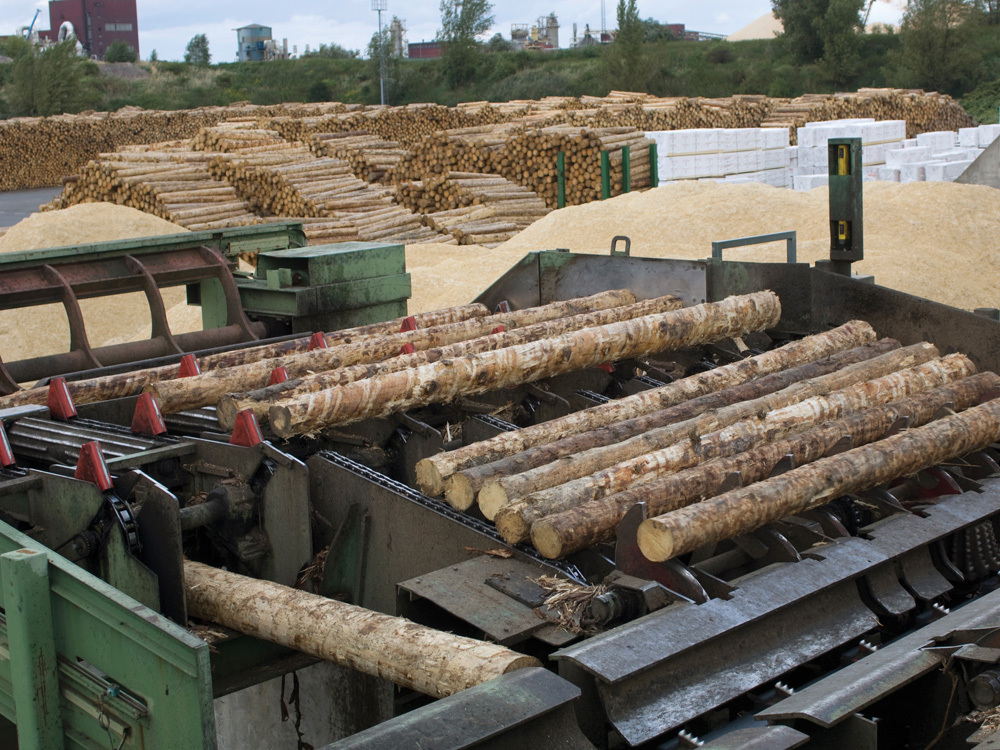What's Waste?




September 20, 2011
BY Lisa Gibson
Concerned about the adverse impact they will have on its members and the wood products industry in general, the American Wood Council is pushing against the U.S. EPA’s Maximum Achievable Control Technology rules. Of utmost concern is the rules’ “solid waste” classification of certain waste wood products currently burned for energy at many sawmills. The mills contend that the materials should be considered as traditional biomass fuel.
Many wood products mills draw energy from wood scraps that have coatings integral to the wood products industry, such as resins and other glue-type products. Instead of being considered biomass boilers, they would be designated as solid waste incinerators and subject to the Commercial and Industrial Solid Waste Incinerator rule instead of boiler rules that govern major and area source commercial, industrial and institutional boilers and process heaters. Solid waste incinerators must adhere to emission limits about three times more stringent than those required of boilers and process heaters, burdening facilities that burn their resonated wood for energy with billions of dollars in control equipment investments. But during this fragile time in a slumping wood products industry, that amount of money would put many operations over the edge and force closures, according to Timothy Hunt, the AWC's senior director for air quality programs.
“Because CISWI is so much more difficult to meet, our wood product mills will face a dilemma,” he says. Those operations will be forced to either continue burning their wood scraps and spend the money to comply with CISWI, or pay to landfill their wood, while paying additional money for different biomass resources or even fossil fuels to make up for the energy their own wood residue previously provided. “You’re throwing away your fuel to buy fuel,” Hunt says.
Advertisement
Advertisement
The preamble of the MACT rules does specify that resinated wood will be considered a fuel, but the rules themselves do not adhere to that concept, Hunt explains. The regulatory language is what mills and their lawyers must comply with, he continues, and that specifies a legitimacy test that leaves resinated wood in the solid fuels category. In an attempt to clear up that uncertainty, the U.S. EPA issued a paper saying it will soon issue guidance documents to determine which alternative materials might qualify as fuels.
“But the EPA can’t use guidance to change a regulation,” Hunt says. “They need to go back and alter the regulation.” The AWC is one of many industry organizations that are urging EPA to modify the MACT rules, but Hunt says he hasn’t seen the agency moving in that direction. He says the groups have one main message for EPA: “We seem to agree that our goal was to make sure these materials were fuels, but you didn’t follow through in your regulatory language to make that happen. Please modify the rule to make it line up with the preamble and your intent.”
Advertisement
Advertisement
If EPA is unwilling to make regulatory changes, new legislation is the only option. Both the U.S. House and Senate have existing bills that would do just that.
Even complying with the existing boiler MACT rules would cost the wood products industry about $1 billion, but is better than the $3 billion it would cost if the solid fuels regulatory language isn’t adjusted, Hunt says.
“There’s a lot economically at stake, and obviously, then there’s the job implications,” he says.
—Lisa Gibson
Related Stories
The U.S. Department of Energy Bioenergy Technologies Office (BETO) announced up to $23 million in funding to support research and development (R&D) of domestic chemicals and fuels from biomass and waste resources.
The U.S. DOE has announced its intent to issue funding to support high-impact research and development (R&D) projects in two priority areas: sustainable propane and renewable chemicals and algal system cultivation and preprocessing.
Sens. Sherrod Brown, D-Ohio, and Pete Ricketts, R-Neb., in August introduced the Renewable Chemicals Act, a bill that aims to create a tax credit to support the production of biobased chemicals.
The Chemical Catalysis for Bioenergy Consortium, a consortium of the U.S. DOE’s Bioenergy Technologies Office, has launched an effort that aims to gather community input on the development of new biomass processing facilities.
USDA on March 8 celebrated the second annual National Biobased Products Day, a celebration to raise public awareness of biobased products, their benefits and their contributions to the U.S. economy and rural communities.
Upcoming Events










